Related Research Articles

Diego Portales University is one of the first private universities founded in Chile and is named after the Chilean statesman Diego Portales.
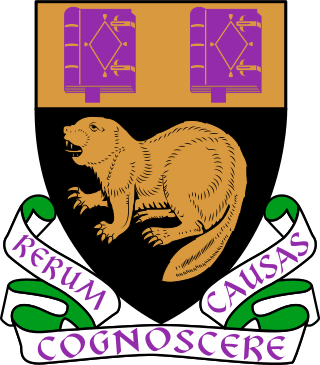
The London School of Economics and Political Science (LSE) is a public research university in London, England, and a member institution of the University of London. The school specialises in the social sciences. Founded in 1895 by Fabian Society members Sidney Webb, Beatrice Webb, Graham Wallas and George Bernard Shaw, LSE joined the University of London in 1900 and established its first degree courses under the auspices of the university in 1901. LSE began awarding its degrees in its own name in 2008, prior to which it awarded degrees of the University of London. It became a university in its own right within the University of London in 2022.

The Open University of Sri Lanka is a national university in Sri Lanka. It is unique within the Sri Lankan national university system for being the only university to offer programs of study leading to certificate, diploma, degrees and postgraduate degrees up to PhD level through the Open and Distance Mode of Learning (ODL). The degrees awarded by the university are treated as equivalent to degrees awarded by any other Sri Lankan University under the preview of the University Grants Commission.

The University of Macau is a public research university of Macau. The university campus is located in Hengqin Island, Zhuhai, Guangdong, on a piece of land leased to and under the jurisdiction of the Government of Macau.

Cochin University of Science and Technology (CUSAT) is a state government-owned autonomous university in Kochi, Kerala, India. It was founded in 1971 and has three campuses: two in Kochi and one in Kuttanad, Alappuzha, 66 km (41 mi) inland.
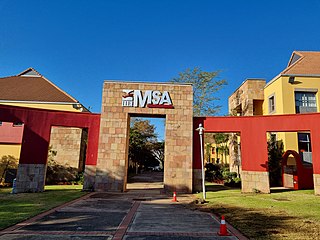
The IIE MSA, formerly known as Monash South Africa, is a university located in Johannesburg, Gauteng, South Africa. The Managing Director at IIE MSA is currently Louise Wiseman.
Çanakkale Onsekiz Mart University is a Turkish public research university located in Çanakkale province, near Gallipoli and its surrounding towns. It is a member of the Balkan Universities Network, the European University Association (EUA), International Association of Universities (IAU), and the Thrace Universities Union.

The University of Eswatini is the national university of Eswatini.
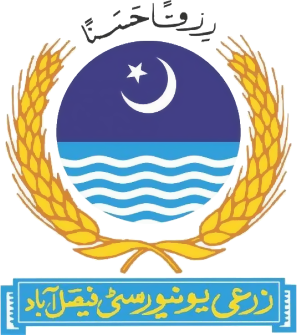
The University of Agriculture (UAF) is a public research university in Faisalabad, Pakistan. It is the largest university of Pakistan by area, with a covered area of 2,550 acres. It is ranked as a top university of Pakistan for Agriculture/Veterinary and is ranked among top ten Pakistani universities in general category
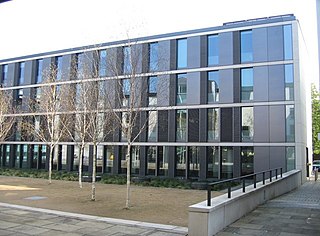
The Institute of Criminology is the criminological research institute within the Faculty of Law at the University of Cambridge. The Institute is one of the oldest criminological research institutes in Europe, and has exerted a strong influence on the development of criminology. Its multidisciplinary teaching and research staff are recruited from the disciplines of law, psychiatry, psychology, and sociology. It is located on the Sidgwick Site in the west of Cambridge, England. The Institute of Criminology building was designed by Allies and Morrison. The Institute is also home to the Radzinowicz Library, which houses the most comprehensive criminology collection in the United Kingdom. The Institute has approximately 50 PhD students, 30-40 M.Phil. students, and 200 M.St students. The Institute also offers courses to Cambridge undergraduates, particularly in law, but also in human social and political sciences and in psychology and behavioural sciences.

A public policy school or school of public affairs is typically a university program, institution, or professional school of public policy, public administration, political science, international relations, security studies, management, urban planning, urban studies, intelligence studies, global studies, emergency management, public affairs, nonprofit management, criminology, and the sociology of law.
Lancaster University Management School (LUMS) is the business school of Lancaster University in Lancaster, England. The school's history can be traced back to the establishment of departments of marketing and of operational research at the university's foundation in 1964. These and other related departments were organised into the "School of Business and Organizational Studies" in 1969. A full range of subjects are taught, ranging from undergraduate degrees to postgraduate degrees, including executive and full-time MBAs, PhDs and post-experience executive education.
The Andrew Young School of Policy Studies (AYSPS) is a school of public policy and one of 12 schools and colleges that constitute Georgia State University. Founded in 1996 as the Georgia State University Policy School, the school was named after civil rights leader Andrew Young in 1999.
The academic undergraduate degree of Bachelor of Social Science requires three to four years of study in the social sciences at an institution of higher education, primarily found in the Commonwealth of Nations.
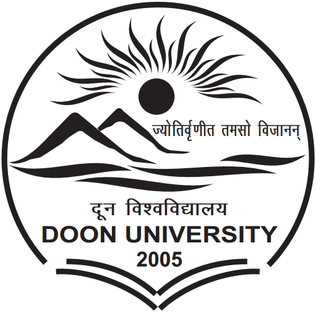
Doon University is a state public university located in Dehradun in the north Indian state of Uttarakhand.

The University of Málaga is a public university ranked 23 among all Spanish universities and 683 in the world. It was established in 1972 and has, as of 2016, 30,203 Bachelor students and 2576 on a Master's program, 1255 tenured and 1056 temporary teachers. The UMA offers 65 degree courses and 6 double degrees, over 21 doctoral programmes, 64 master's Degrees, and 100 courses throughout the academic year. Education takes place in 18 centres by appointed teachers from 81 departments. The great majority of the teaching is organised within the two campuses, although classes also take place in locations spread around the city centre, as well as in Ronda and Antequera.
The School of Geography is part of the Faculty of Environment at The University of Leeds based in the UK.

The Catholic University of Portugal, also referred to as Católica or UCP for short, is a concordat university headquartered in Lisbon and with four locations: Lisbon, Braga, Porto and Viseu. Besides the four centres in Portugal, UCP also has the University of Saint Joseph in Macau as its affiliate.
The Department of Social Policy and Intervention is an interdisciplinary centre for research and teaching in social policy and the systematic evaluation of social intervention based in the Social Sciences Division of the University of Oxford. It dates back to Barnett House, a social reform initiative founded in 1914 by a reform movement clergyman, Samuel Barnett, becoming a department of Oxford in 1961.

The Faculty of Social Sciences is a bilingual faculty within the University of Ottawa. The faculty was founded in 1936 as the School of Political Sciences, and was officially named the Faculty of Social Sciences in 1955. The faculty consists of nine departments, schools and institutes that offer undergraduate, masters, and doctoral programs in both of the University's official languages.
References
- ↑ "Masters programmes - Masters programmes - Study - Department of Social Policy - Home". Lse.ac.uk. 4 August 2023.